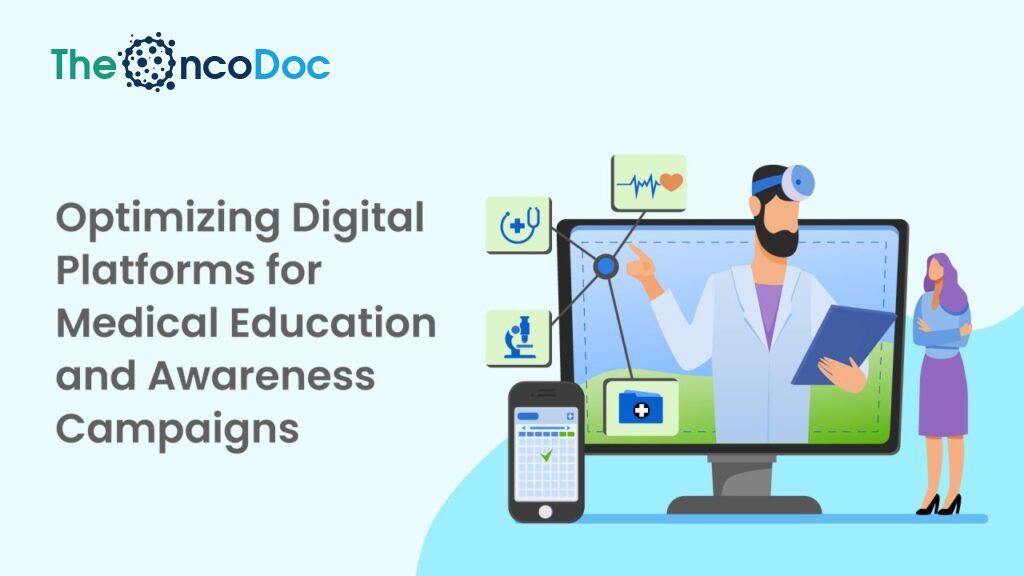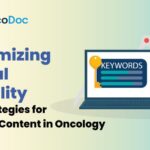The way medical professionals learn and engage with healthcare knowledge has transformed significantly over the years. With rapid advancements in digital technologies, medical education and awareness campaigns have moved beyond traditional classrooms and textbooks. Digital platforms now offer a dynamic, interactive, and personalised approach to learning, making medical education more accessible and impactful.
“This report explores the evolving role of digital platforms in medical education, the benefits of gamification, the role of artificial intelligence (AI) and big data in healthcare awareness campaigns, and how platforms are revolutionising medical learning and collaboration.”
The Digital Transformation of Medical Education
Evolution of Digital Learning in Healthcare
The shift toward digital learning in medicine has been a gradual yet profound transformation:
- Pre-Digital Era (Before 2000): Medical education relied heavily on textbooks, physical lectures, and hands-on training in hospitals. Information dissemination was slow and limited to in-person interactions.
- Early Digital Adoption (2000–2010): Online courses and recorded lectures started gaining traction, offering healthcare professionals flexible learning options.
- Interactive Digital Learning (2010–2020): AI-powered platforms, mobile applications, and virtual classrooms enabled more personalised learning experiences.
- Advanced Digital Ecosystem (2020–Present): Augmented reality (AR), virtual reality (VR), AI-driven diagnostics, webinars, and audio-video podcasts have made medical education more immersive and data-driven.
Growth of Digital Learning (2015–2025 Projection)
The adoption of digital learning in medical education has seen significant growth over the years, as illustrated below:

Key Benefits of Digital Learning for Medical Professionals
- Flexibility & Accessibility: Doctors and medical students can access learning materials anytime, without disrupting their practice.
- Hands-On Training: VR and AR simulations allow for risk-free surgical training and patient diagnosis exercises.
- Global Collaboration: Online platforms enable knowledge sharing and discussions among professionals worldwide.
- Personalised Learning: AI-driven platforms tailor content based on individual learning preferences and progress.
Gamification in Medical Education and Training
The Role of Gamification in Learning
Gamification uses interactive elements such as quizzes, rewards, and simulations to enhance learning. In medical education, it helps improve knowledge retention, engagement, and skill development.

Why Gamification Works in Medical Education
- Problem-Solving Scenarios: Medical professionals can engage in real-life patient cases, improving their diagnostic skills.
- AI-Powered Assessments: Learning modules adjust difficulty levels based on user performance.
- Microlearning Modules: Short and focused lessons help busy healthcare workers retain knowledge efficiently.
- Competitive Leaderboards: Peer-based challenges motivate learners to engage more actively.
AI and Big Data in Medical Awareness Campaigns
AI’s Impact on Public Health Campaigns
Artificial Intelligence and Big Data Analytics are transforming how medical awareness campaigns are designed and executed. AI-driven strategies enhance the effectiveness of health awareness efforts by personalising content and targeting the right audience.


AI Applications in Healthcare Awareness
- Predictive Analytics: AI detects disease trends and potential outbreaks early.
- AI-Powered Chatbots: Provide instant medical advice and support.
- Smart Content Personalisation: AI customises public health messages for different demographics.
AI Applications in Healthcare Awareness
- Predictive Analytics: AI detects disease trends and potential outbreaks early.
- AI-Powered Chatbots: Provide instant medical advice and support.
- Smart Content Personalisation: AI customises public health messages for different demographics.
How Hidoc Enhances Digital Medical Education and Collaboration
Hidoc is an AI-powered medical knowledge-sharing platform designed to help doctors stay updated, collaborate, and enhance their skills. With over 1.6 million doctors worldwide, it serves as a vital resource for continuous medical learning.
Why Doctors Should Use Hidoc
- Access to Cutting-Edge Medical Research: Get real-time updates on emerging treatments and diseases.
- Immersive Learning Modules: Engage with interactive AR/VR-based medical training.
- Global Medical Community: Discuss complex cases and exchange knowledge with doctors worldwide.
- AI-Driven Personalized Learning: Receive curated learning materials tailored to your field of expertise.
“By integrating Hidoc into their professional learning routine, medical professionals can enhance their expertise, stay updated with the latest medical trends, and improve patient care.“
Conclusion
Digital platforms are reshaping medical education and awareness campaigns, making them more efficient, engaging, and accessible. AI, gamification, and data analytics are not only transforming learning methodologies but also enhancing public health initiatives.
With platforms like Hidoc, medical professionals can leverage advanced AI-driven insights, collaborate with global experts, and continuously enhance their skills to provide better healthcare.
“The future of medical education is digital – embrace it to stay ahead in the evolving healthcare landscape.”
The Oncodoc team is a group of passionate healthcare and marketing professionals dedicated to delivering accurate, engaging, and impactful content. With expertise across medical research, digital strategy, and clinical communication, the team focuses on empowering healthcare professionals and patients alike. Through evidence-based insights and innovative storytelling, Hidoc aims to bridge the gap between medicine and digital engagement, promoting wellness and informed decision-making.



